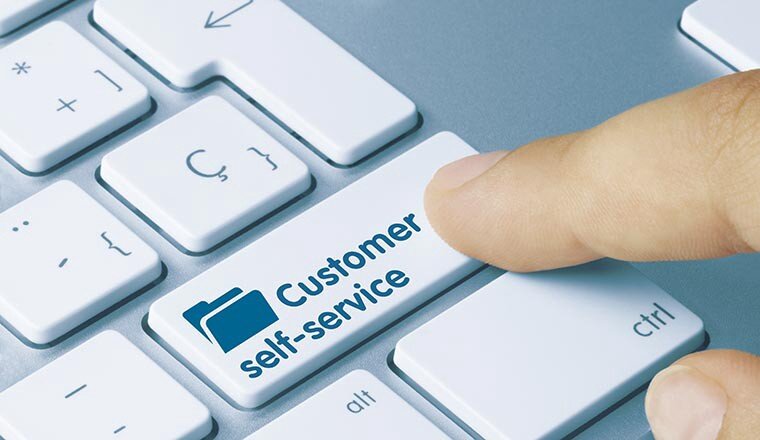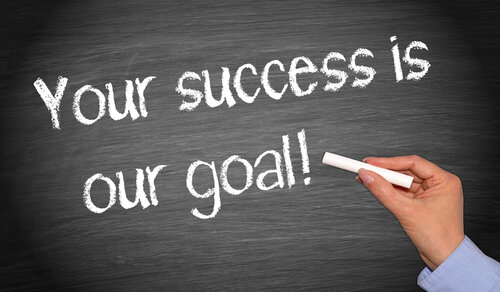[Commercial innovation] Why are business ecosystems suddenly such a hot topic?
[Commercial innovation] About the Rise of [Eco-systems] to create [Competitive Advantage]. Interesting article from Julian Birkinshaw, who is Deputy Dean and Professor of Strategy and Entrepreneurship at the London Business School. Published in HBR, August 08, 2019
Interesting article about the Rise of [Eco-systems] to create [Competitive Advantage] from Julian Birkinshaw, who is Deputy Dean and Professor of Strategy and Entrepreneurship at the London Business School.
New Rules: Ecosystem Thinking
The rapid growth of business ecosystems in recent years challenges this ‘Deep Moat’ -thinking. Most of the ecosystem orchestrators, like Google, Alibaba, and Uber, don’t make the things they sell; they exist to link others together, and this makes the old positioning-based logic less relevant. And, of course, they don’t have many assets, either. They create value through relationships and networks, not through physical goods or infrastructure, so arguments built around asset ownership are equally challenging. These firms are also looking to grow the market — by increasing the flow of people and goods — rather than to capture as much of the existing market as possible.
The Old and New Rules of Competitive Advantage
Old Rules: Deep Moats
The moat is what protects the business from competitors. Sometimes it is based on access to a scarce resource or ownership of a patent, sometimes it is based on customer loyalty and a strong brand, and sometimes it is an artifact of government regulation.
Thrust - [Business Eco Systems -Keep customers flowing in]
Some advice for what to focus on
Keep customers flowing in - You need to give people a reason to participate in your eco-system
Give people a reason to stick around - A vibrant ecosystem is one where participants gain value in multiple ways
Don’t steal your partners’ business - Operate as an ecosystem where all participants have an opportunity to prosper
Keep evolving - One huge benefit of being an ecosystem orchestrator is privileged access to information about the entire ecosystem. The smarter approach is to use this information to keep things moving — to open up new markets, and to do this quicker than your competitors.
Ecosystems challenges
This ecosystem-based approach to strategy isn’t for everyone.
As a way of working, it is inherently more stressful and chaotic than the more traditional moat-based approach.
It attracts a lot of challengers.
The split between the worlds of moats and turnstiles isn’t absolute
De toekomst van sales?
Welke veranderingen en transformatie zullen nodig zijn om de salesfunctievan een onderneming future-proof te maken?
“De toekomst van sales: digitaal, remote, inbound, zelf-service en de invloed van eco-systemen... Sales zal nooit meer hetzelfde zijn!”
Zal de invloed van de gezondheidscrisis ingrijpend en blijvend zijn?
De positieve zijde van deze crisis!
De gezondheidscrisis dwingt ondernemingen om sneller actie te ondernemen. Voorziene veranderingen of overwogen transformaties in sales en marketing worden plotseling veel sneller omgezet van ideeën naar concrete realisaties.
Welke veranderingen en transformatie zullen nodig zijn om de salesfunctie van een onderneming future-proof te maken?
Klanten grijpen de macht!
Een van de belangrijkste veranderingen in marketing en sales van de afgelopen jaren is de machtsverschuiving naar de klant. Daarom zal elk bedrijf zich moeten aanpassen en de klanten en prospecten fundamenteel anders moeten benaderen.
Customer centricity & digitale klantrelaties
Van outbound naar inbound!
“Buyers don’t want to be prospected, demo’d, or closed in your SALES process.
They want to be educated, supported, and guided through their BUYING process.”
“As a salesperson, you have more skin in this game than anyone else at your company”
Inbound marketing is het proces voor het aantrekken van prospecten, het engageren en het ‘delighten’ van klanten. Performance (content) marketing staat centraal: voor het empoweren van prospecten, het uitbouwen van lange termijn relaties met klanten/ publiek, het creëren van waardevolle content die zowel vermaakt als onderricht.
Marketing automation tools helpen bij dit proces dat marketing, sales en customer service integreert. Het is belangrijk om de rollen van éénieder in dit proces te bepalen.
Alignering marketing & sales!
Het is voor heel wat bedrijven steeds een goede keuze wanneer ze besluiten te investeren in het verbeteren van de onderlinge samenwerking en [alignering van marketing en verkoop].
Marketing en verkoop vloeien in elkaar over. Er is geen duidelijke scheidingslijn meer. Daardoor is het complexer om te bepalen wie welke rollen heeft ten aanzien van de klanten.
Het is echter belangrijk om, ondanks de duidelijke verschillen tussen marketeers en salesmedewerkers, de problemen op te lossen die ontstaan in de ‘interface’ tussen marketing en verkoop. Deze wederzijdse afhankelijkheid (‘interface’) is namelijk de sleutel tot superieure ‘customer value’.
zelf-service!
Zelf - service wordt één van de belangrijkste speerpunten bij het herbekijken van het volledige verkoop’systeem’: hoe zullen bedrijven er voor zorgen dat klanten en prospecten nog meer online en op eigen snelheid geholpen en geïnformeerd kunnen worden voor een aankoop, om antwoorden te vinden op hun vragen, over geschike oplossingen, om te leren, om zich te engageren.
Zelf-service zal nog belangrijker worden en het mogelijk maken dat salesmedewerkers pas worden ingezet wanneer het er echt toe doet.
Met zelf-service wordt het allemaal efficiënter en kan hetzelfde bereikt worden met minder mensen.
innovaties snel in de markt!
[Innovaties] zijn alleen succesvol wanneer ze ook succesvol commercieel worden gelanceerd [go-to-market].
Bedrijven die innovaties met intensieve ondersteuning commercieel sneller in de markt kunnen brengen, zullen het op termijn duidelijk beter doen dan hun naaste concurrenten.
Om innovaties succesvol in de markt te kunnen zetten moet een commerciële aanpak op maat worden uitgewerkt.
Pods en agile organisatie!
[Sales organisatie] Sales zal anders georganiseerd moeten worden. De kernvraag is of de ‘klassieke verzuiling’ met aparte silo’s, marketing - sales - customer service, nog overeind zal blijven.
Bepaalde bedrijven werken al met ‘pods’ die bestaan uit inside sales, field sales, customer success en technical sales. Deze zouden nog uitgebreid kunnen worden door connecties te maken met marketing.
Slimme bedrijfsleiders zijn bezig om de marketing- en salesorganisatie nog verder te transformeren tot een agile organisatie.
data science marketing!
Marketing en verkoop zullen voor een groot gedeelte digitaal verlopen en [data science marketing] zal in de nabije toekomst voorschrijven wat er precies moet gebeuren om succesvol te verkopen, klanten te behouden en actief te betrekken als ambassadeurs.
Klanten grijpen de macht!
Klanten centraal!
Ondernemingen van de toekomst stellen de klant helemaal centraal [customer-centricity] en verwachten dat klantrelaties sterk gedigitaliseerd zullen zijn.
Inbound marketing en inbound sales
“Inbound is all about providing a helpful, human, and holistic experience to anyone who interacts with your company in any way. ”
Omdat klanten graag zelf het initiatief willen nemen en de leiding willen behouden over het eigen koopproces, zijn [inbound marketing] en [inbound sales] belangrijk als kernprocessen in verkoop. Aan de basis liggen [customer personae], [customer journeys], en [value propositions].
Inbound marketing om prospecten aan te trekken en klanten te engageren
Inbound sales is het proces om toekomstige klanten te identificeren, met hen te connecteren, individuele noden en wensen te exploreren en te adviseren over oplossingen. Salesmedewerkers hebben nieuwe skills en een andere mindset nodig. Ze leren werken in een aangepast verkoopsysteem.
digitale sales!
[Digitale transformatie] is, ook in sales en marketing, één van de strategische prioriteiten voor elk zichzelf respecterend bedrijf. Maar veel bedrijven weten nog niet hoe ze dit moeten realiseren.
Digitale marketing en digitale sales (coaching en communicatie) tools zullen overal aanwezig zijn.
“‘Senior managers often describe the working relationship between Sales and Marketing as unsatisfactory. The two functions, they say, undercommunicate, underperform, and overcomplain’”
Het vertrekpunt in de relatie tot de klant, is niet het marketingproces of het salesproces. Centraal staat het koopproces van de klant en het is voor de klant niet belangrijk welk departement het initiatief neemt om te helpen.
Voor elke klant is het belangrijk dat de hele interactie en de verschillende contactmomenten met het bedrijf steeds vlot verlopen en dat er wordt geholpen.
Marketing- en salesdepartementen die goed op elkaar zijn afgestemd zijn bovendien kostenbesparend.
Klanten helpen zichzelf en … de onderneming
Eco-systemen!
Bedrijven zullen zich ook realiseren dat [ecosystemen] , met intensieve co-creatie [service design] en samenwerking met klanten, bedrijven, leveranciers en andere partners [strategische partnerschappen], een essentieel onderdeel zullen zijn van hun bedrijfsstrategie om onderscheidend te zijn ten opzichte van de concurrentie.
Het is belangrijk om alle marketing en salesmedewerkers intensief te trainen en te coachen bij de lancering en om problemen bij de lancering snel te kunnen oplossen.
Het bonussysteem moet worden aangepast in functie van de lancering.
Einde van het werken in Silo’s?
Agile salesorganisaties
Customer success management!
Nieuwere functies zullen nog meer aan belang winnen zoals customer engagement manager, customer succes manager, loyalty program manager. Al deze nieuwere functies zijn nauw verbonden met sales en marketing en het zijn vaak ex - marketing- of salesmanagers en andere werknemers met saleservaring die in deze functies terecht komen. Deze functies overstijgen de klassieke marketing, sales, communicatie, en customer service indeling.
[Covid-19] The new normal for companies after Covid-19
The new normal for companies after Covid-19.
The future is not what it used to be: thoughts on the shape of the next Normal.
The new Normal
““The future is not what it used to be: Thoughts on the shape of the next normal””
Distance is back
Resilience and efficiency
The rise of the contact-free economy
More government intervention in the economy
More scrutiny for business
Changing industry structures, consumer behavior, market positions, and sector attractiveness
Finding the silver linings
[Covid-19] How companies can respond to protect their company?
[Covid-19] How companies can respond to protect their company during Covid-19. About war rooms, critical questions about, for example, the stability of the customer base, cash protection, etc.
[Covid-19] How companies can respond to protect their company during Covid-19. About war rooms, critical questions about, for example, the stability of the customer base, cash protection, etc.
Bain & company. Interesting article from Andrea Yandreski and Simon Henderson, April 09, 2020
Act now
Immediate steps to address liquidity:
Step 1: Create a central cash war room - The CFO leads the cash war room with a team drawn from treasury, sales, purchasing and human resources. A war-room approach enables rapid, real-time decision making and focuses leadership teams on the most urgent liquidity needs and cash-preservation actions.
Step 2: Develop a single view of your liquidity position and outlook - Create a 13-week cash-flow forecast This diagnoses the severity of your current position
Step 3: Launch decisive actions to preserve cash - Implement immediate mandates to reduce spending. Act quickly, understanding that speed is essential and initiatives can be temporary.
Step 4: Control all cash outflows - Initiate daily spending review sessions to challenge all purchase requests and instill a ruthless cash-preservation mindset across the organization
What can we deny? Which outlays are not vital to operations and not yet committed?
What can we delay? Where do we have flexibility in timing or credit terms for required spending?
Should we invest? When is the business case for investment justified to enable continued operations?
Step 5: Prepare enterprise models based on different macro scenarios - Modeling helps the leadership team assess the company’s level of exposure, stress test the P&L and develop contingency plans. At a minimum, develop the best-case, base-case and worst-case scenarios. The worst-case scenario should envision a disastrous sequence of events.
Test
A few questions can serve as a litmus test of whether you have a clear view of your liquidity and cash position:
Are we testing the company’s ability to respond to a range of challenging scenarios?
With the current burn rate and cash position, how long could we continue to operate?
What additional sources of capital can we pursue, and what lead time do they require?
How stable is our customer base, and what share of the business comes from our largest customers?
How are receivables trending compared with the budget, considering both sales and payment terms?
Have we identified our most important suppliers, and are we putting their needs first?
How to protect Cash?
5 steps companies can take
[Covid-19]: How can marketers and business leaders respond?
How can marketers and businessleaders respond tactically to ensure a quick recovery after the pandemic and use available data from search engines?
How can marketers and businessleaders respond tactically to ensure a quick recovery after the pandemic and use available data from search engines?
At a Glance
Copious data from search engines and ad platforms can help marketers navigate a wise course during and after the pandemic.
Google Trends data showing demand for product categories in countries where the coronavirus has already peaked will predict demand shifts in other countries over the coming weeks.
Lower digital advertising costs allow marketers to recalibrate ad investment in order to accelerate sales after the crisis abates.
When marketing teams come up for air, they should analyze demand data from the previous financial crisis to broaden insights about their current audience.
Google Trends data serves as a fairly reliable predictor of consumer demand
Next responses
Harvest data now to relaunch your marketing plan later in 2020 - Broaden insights about current and potential customers, possibly through a third-party panel or media partner. Match your CRM or internal audience data to track changes in customer behavior over the previous month.
Assign a small team to analyze shifts in conversion and engagement rates over the past four to six weeks.
Put your owned assets in order by asking a few questions.
Fix the plumbing. In the course of day-to-day business, the rigor of certain marketing operations often slips. Now is the time to tighten standards again. Standardize campaign naming for ease of reporting and interpretation of results;
Ample Data, Often Free, Can Predict Consumer Behavior Through the Covid-19 Crisis
Publicly available tools help companies spot patterns in one country or region that will likely repeat elsewhere.
Bain&Company article from John Grudnowski, Blake Cuthbert and Justin Halim, April 09, 2020
Responses
Use Google Trends as a leading indicator - Google Trends data serves as a fairly reliable predictor of consumer demand next week or month
Take advantage of lower digital ad costs - In the past two weeks, the combination of lower investment from advertisers and increased media consumption has led to a dramatic decline in cost per thousand impressions (CPM). Companies whose products are in higher demand can achieve tremendous reach connecting consumers to those products. Brands in industries that have suffered a falloff in demand can provide valuable customer communications or support the community through fundraising and awareness.
Match your CRM or internal audience data to track changes in customer behavior
“Questions:
How are our website and social assets performing? How can we reduce bounce rates and boost conversion rates by improving navigation and functionality? How can we enhance the mobile app experience to raise user engagement and retention?”
“Consumer demand has been shifting quickly in the wake of the pandemic. But the shifts are neither random nor unique. They happened somewhere else a few weeks ago. Search engine and ad platform data provide raw material for pattern recognition, allowing marketers to keep pace with or even anticipate the next turn of category demand.”
Value denial is a business opportunity
“A 'value denial' is a business opportunity.
Every change and innovation creates new value denials”
Richard Rumelt
McKinsey & Company - Strategy’s strategist: an interview with Richard Rumelt
Richard Rumelt: Most corporate strategic plans have little to do with strategy. They are simply three-year or five-year rolling resource budgets and some sort of market share projection. Calling this strategic planning creates false expectations that the exercise will somehow produce a coherent strategy.
This plan coordinates the deployment of resources—but it’s not strategy. These resource budgets simply cannot deliver what senior managers want: a pathway to substantially higher performance.
There are only two ways to get that. One, you can invent your way to success. Unfortunately, you can’t count on that. The second path is to exploit some change in your environment—in technology, consumer tastes, laws, resource prices, or competitive behavior—and ride that change with quickness and skill. This second path is how most successful companies make it. Changes, however, don’t come along in nice annual packages, so the need for strategy work is episodic, not necessarily annual.
So my basic recommendation is to do two things: avoid the label “strategic plan”—call those budgets “long-term resource plans”—and start a separate, nonannual, opportunity-driven process for strategy work.
So strategy starts with identifying changes? Right!
Even though these changes have long-term consequences, companies need to take a position now. By “take a position” I mean invest in resources that will be made more valuable by the changes that are happening.
Strategic thinking helps us take positions in a world that is confusing and uncertain. You can’t get rid of ambiguity and uncertainty—they are the flip side of opportunity. If you want certainty and clarity, wait for others to take a position and see how they do. Then you’ll know what works, but it will be too late to profit from the knowledge.
So how does a company take a good position?
Well, one big factor is a predatory posture focused on going after changes.
Steve Jobs: “I am going to wait for the next big thing.” Jobs didn’t give me a doorknob-polishing answer. He didn’t say, “We’re cutting costs and we’re making alliances.” He was waiting until the right moment for that predatory leap, which for him was Pixar and then, in an even bigger way, the iPod. That very predatory approach of leaping through the window of opportunity and staying focused on those big wins—not on maintenance activities—is what distinguishes a real entrepreneurial strategy.
So he spotted—and then exploited—a change whose time had come.
What capabilities do companies need in order to take advantage of these ideas?
Richard Rumelt: There is no substitute for entrepreneurial insight, but almost all innovation flows from the unexpected combination of two or more things, so companies need access to and, in some cases, control over the right knowledge and skill pools.
So how do we know which changes are important and which resources to combine?
Most of the strategy concepts in use today are static. They explain the stability and sustainability of competitive advantages. Strategy concepts like core competencies, experience curves, market share, entry barriers, scale, corporate culture, and even the idea of “superior resources” are essentially static, telling us why a particular position is defensible—why it holds the high ground.
Strategy dynamics studies how those changes would shift each dimension of an industry. Would the industry become more concentrated or less? More integrated or less? Would there be more product differentiation or less? More segmentation or less? Given consumer desires and available technologies, how should the industry or business look in, say, ten years? Where are the economic forces trying to take you? Should your strategy ride those forces or fight them?
What’s another way to understand strategy dynamics?
I use another tool I call “value denials.” These are products or services that are both desired and feasible but are not being supplied to the market. The concept combines insights into demand and potential supply. A classic example is an airline ticket guaranteeing that your luggage will not be lost. It just isn’t supplied at any price. There must be a price at which airlines would hand-carry luggage to the baggage compartment and even a price at which they would strap it into the seat next to you! There are times when we would pay the premium, but those services are not offered. That’s a value denial.
A value denial is a business opportunity. Every change and innovation creates new value denials. People wanted to buy music à la carte and keep 10,000 songs on their computers. Well, they got that, but there was a value denial: the digital music wasn’t portable. So along come the MP3 player and the iPod. But those innovations uncovered a new value denial: people also want to plug their players into their stereos. Well, this was pretty easily fixed, but playing your MP3s on your stereo uncovers yet another value denial: MP3s are compressed and just don’t sound as good as CDs. Finally, even when I have immediate access to all music anywhere and anytime through the “jukebox in the sky,” there will still be a value denial—how will I know what to listen to? I will need a private tutor and disc jockey to help arrange my listening and maybe to shape my tastes.
So one useful way to think about change is to turn aside from the central innovation and ask yourself what value denials it will uncover. How will they be fixed? And what value denials will then be uncovered by that fix?
Kluwer opleiding: sales management van de toekomst
Opleiding sales management 4.0?
'Word sales manager van de toekomst'
Programma topics
De sales manager als strategisch en innovatief leider
De sales manager als inspirerend people manager en coach
De sales manager als sales organisator en talent scout
De sales manager als actie- en prestatiegericht aandrijver
Kritische succesfactoren van een business development project
Met een business development project kan je alle kanten op.
Eén ding is zeker: het is een hefboom om het bedrijf op lange termijn beter te maken.
#businessdevelopmentmanagement #commercialinnovation
Met een business development project kan je alle kanten op.
Eén ding is zeker: het is een hefboom om het bedrijf op lange termijn beter te maken.
Of het nu gaat om expansie, innovatie, winst en omzet verhogen, nieuwe markten betreden of het verbeteren van de efficiëntie van bedrijfsprocessen: nieuwe business development projecten zijn belangrijk voor de lange termijn groei van elke organisatie.
Het toepassingsgebied is open is en er zijn geen standaard werkwijzen. Daarom is het belangrijk om rekening te houden met een aantal kritische succesfactoren die bepalend zijn voor elk project. Kies niet blindelings voor een tijdelijke oplossing. In plaats daarvan kan je beter werken rond enkele succesfactoren om resultaten te oogsten op lange termijn.
Focussen op lange termijn groeikansen
Strategische beslissingen tot in de details voorbereiden
Het onderscheidend vermogen onderzoeken
Multidisciplinair werken
Projectpijplijn feilloos beheren
2.Strategische beslissingen tot in de details voorbereiden - Hoofdtaak van een goede business development manager is het voorbereiden van strategische beslissingen, en niet het nemen van strategische beslissingen. Je verzamelt informatie (intern/extern), analyseert en levert input voor strategische beslissingen.
4.Multidisciplinair werken - Bedrijfsontwikkelingsactiviteiten strekken zich uit over verschillende afdelingen, waaronder verkoop, marketing, customer service, strategische cel, financiën, O&O, productmanagement, projectmanagement, aankoop en leveranciersbeheer. Al deze verschillende afdelingen en activiteiten worden gedreven en afgestemd op de lange termijn ontwikkeldoelen.
1.Focussen op lange termijn groeikansen - Business development omvat ideeën, activiteiten en initiatieven om een bedrijf op lange termijn beter te maken. Om groeikansen binnen en tussen organisaties te ontwikkelen en te implementeren. Het is het creëren van lange termijn waarde voor een organisatie, voor klanten, markten en relaties. Enkel focussen op snelle resultaten en ROI heeft vaak niet het gewenste groei effect. De mogelijkheden van je idee of initiatief worden dan vaak niet ten volle benut.
3.Het onderscheidend vermogen onderzoeken - Geen enkel businessidee is uniek. De kans is groot dat een gelijkaardige business development idee ook elders bestaat. In dat geval is het belangrijk om te focussen op het concurrentieel voordeel van je idee. Bepaal welke voordelen jouw idee onderscheidend maken van andere ideeën en initiatieven van concurrenten.
5.Projectpijplijn feilloos beheren – Wanneer de groei initiatieven en strategieën zijn goedgekeurd door het management, zal goed projectmanagement een wereld van verschil maken. Zonder een feilloze integratie van deze business development initiatieven in één efficiënte pijplijn zal je misschien niet het gewenste resultaat hebben. Besteed daarom voldoende aandacht aan de projectpijplijn om mogelijke risico’s te minimaliseren en te vermijden.
10 Sales Management Strategies that Move the Needle
The objectives of sales management are aligned with the overall goals of any business: grow pipeline, convert leads, increase revenue. Sales managers have the ability to directly impact each of these critical initiatives, and can make themselves invaluable by taking steps to positively influence them.
Social selling: starten met het maken van de juiste connecties
Social selling
LinkedIn video
Masterclass sales management: 'klantbeleving heeft vandaag de hoogste prioriteit'
Schrijf je in voor de nieuwe masterclass sales management 2019
Chris Delvaux over de Sales Manager 2.0
Door de waterval aan technologische mogelijkheden zijn verkoop en verkoopmanagement in volle evolutie. Met de toename van digitale contactmogelijkheden, neemt de klant vandaag steeds meer de leiding in het aankoopproces. Bovendien komt er een nieuwe generatie verkooptalent op de arbeidsmarkt, die net als de klant andere verwachtingen koestert… Wat betekent dat voor de rol van de sales manager? Welke competenties heeft een sales manager nodig om vandaag relevant en succesvol te zijn? Een gesprek met Chris Delvaux, ervaren consultant en trainer, en een getuigenis van Dominique Gossé, Commercial Director Distribution Channel DVV/Les App bij Belfius, over verkoopmanagement vandaag in de verzekeringswereld.
BAIDU’S MELODY - virtual medical assistant
Melody is a virtual medical assistant inside of the Baidu Doctor app in China. The chatbot helps patients articulate their symptoms before seeing a physician.
One common problem doctor’s have with patients is that they often aren’t clear on their own symptoms before booking appointments or seeking medical treatment. Melody the Baidu bot seeks to solve this problem by chatting with patients in an interactive way and helping them articulate their symptoms at the necessary level of detail for physicians.
Maakindustrie en servitisatie: een sterke combinatie
Interessant artikel over servitisatie, nieuwe verantwoordelijkheden voor medewerkers en het belang van een kwalitatieve uitrol in de organisatie.
In dit artikel wordt heel sterk de nadruk gelegd op het belang van een transformatie naar een organisatie waar ALLE medewerkers betrokken en verantwoordelijk zijn voor het 'servicen' van de klanten.
https://www.agoria.be/nl/Maakindustrie-en-servitisatie-een-sterke-combinatie?
Innovative solutions and the search for Fit
Innovative solutions and the search for Fit
Innovative solutions and the corresponding value propositions are only relevant if they fit at three levels. Read this article
Innovative solutions and the corresponding value propositions are only relevant if they fit at three levels
[Innovation] The identified challenge or problem for your company and the customer.
In the first place, an innovative solution and its corresponding value proposition have to address the identified challenge or problem for your company and the customer.
All great ideas are of little significance if they are not appropriate solutions for the identified problem(s). Therefore it is very important to identify first all real challenges or problems, to cluster and prioritize them (assigning weight) for example on the basis of the impact that they (can) have for the business. A facilitator can help you with the process of identification, clustering and prioritizing. It is important to be able to start from the underlying real problem or challenge, which often manifests itself not immediately and clearly. Every innovative idea must first be checked against the problem to determine whether it can be a suitable solution to this fundamental problem.
Secondly, each solution (product and/or service) must be appreciated and validated by the customer.
It must be examined in the market and among customers if the solution is really valuable to the customer and whether there is a positive reaction of the customer. What are the chances that the solution really get a grip on the market and target audience?
[Innovation] Validation by the customer
Finally, there should be a search for the way the innovative solution (product / service) fits into the business model.
In other words, it should be considered whether the innovative solution actually can be set up, can be organized and embedded in to a profitable and scalable business model.
About the author
Chris Delvaux has over 15 experience as a senior consultant. He is specialized in go-to-market optimization, business model innovation and service design. He facilitates and coaches teams in commercial transformation projects from the analysis to the result. He works strategically AND pragmatically. He has worked for clients such as Baxter, Nashuatec (Ricoh), DVV Insurance, Associated Weavers, Stihl Benelux
Go-to-market challenges and guidelines for optimization
Go-to-market challenges and guidelines for optimization
How to develop commercial potential in a customer-driven and omni-channel economy?
Go-to-Market - solutions
What are the best solutions for the Go-to-Market challenges?
Improving the Go-to-Market approach needs to be done in three phases. A thorough analysis of the entire commercial ecosystem is the basis for the next two steps: "without a diagnosis, no prescription”. In a second phase will be examined how the commercial strategy can be enhanced and additional commercial value can be created. In phase three, the focus is on how the organization will be prepared for the future.
Go-to-market challenges
A maximum development of commercial potential in a customer-driven and omni-channel economy.
Commercial potential remains often untapped. A lack of effectiveness in sales and marketing approach is one of the main causes of falling sales figures and declining growth power.
The first major challenge is the discovery and development of intrinsically present, commercial potential in sales and marketing approaches. The second major challenge is the elimination of significant differences in methods and results between top executives and top managers, and the rest of the organization. The need for a better alignment of activities and responsibilities between the marketing, sales and other departments, is the third major challenge.
About the author
Chris Delvaux has over 15 experience as a senior consultant. He is specialized in go-to-market optimization, business model innovation and service design. He facilitates and coaches teams in commercial transformation projects from the analysis to the result. He works strategically AND pragmatically. He has worked for clients such as Baxter, Nashuatec (Ricoh), DVV Insurance, Associated Weavers, Stihl Benelux
[Business Model Innovation] Revolutionise your business
Revolutionise your business. Get more value out of your business by using the Business Model Navigator to innovate your business. It builds on the central idea that successful business models can be constructed through creative imitation and recombination. -Oliver Gassmann
Get more value out of your business
Business model innovation has additional innovation potential compared to process, product or technology innovation. Many of the big successes like Amazon, Apple, Holcim, Ebay, Ryanair or Ikea, are rather based on innovative business models than on new products. Through business model innovation, you can get more value out of your business. The number of business model innovations has increased significantly over the last 20 years (source: ITEM-HSG). More than 50% of executives believes that their business model will undergo fundamental changes in the next ten years (source: McKinsey, 2011)
Thrust helps to innovate through the Business Model Navigator TM
The Business Model Navigator (BMI-Lab / St. Gallen) is an action-oriented methodology that permits any company to break with its dominant industry logic and innovate its business model. It builds on the central idea that successful business models can be constructed through creative imitation and recombination. (Source: Oliver Gassmann, Karolin Frankenberger and Michaela Csik 2014). 90% of all new business models aren't actually new. They are based on 55 existing patterns. (source: Oliver Gassmann, 2014). These 55 patterns can boost the innovation of your business. It will help you in a creative way to figure out where your business fits in, and which creative imitation and recombination is the most valuable for your business.
Thrust helps with innovation through the Business Model Navigator. We help our clients to analyze the current business model and ecosystem, in facilitating innovation workshops to develop new ideas through the 55 patterns applied to its own business, and/or in the phase of testing and implementation (change management). Or we we guide and facilitate the entire innovation process if desired.
If you are interested to see how THRUST can help you with this approach to innovate successfully your business, contact THRUST
Business model innovation
Commercial innovation by developing a new business model
Commercial innovation by developing a new business model, is one of the possibilities to create added customer value.
What is the best way to do it?
You can find some interesting tips about developing a new business model in the video from the University of St Gallen, Switzerland. (By Prof. Dr. Oliver Gassman). The video is also about typical myths in innovation.
Click here to read more about our services.
If you want more information about commercial innovation by developing a new business model, CONTACT THRUST
For more information on business model innovation, go to www.bmi-lab.ch
![[Commercial innovation] Why are business ecosystems suddenly such a hot topic?](https://images.squarespace-cdn.com/content/v1/56f53cf6b09f955f052e3847/1587549181355-FNS50J4RZM7T4B0BS56S/%5BNewRulesofCompetitiveAdvantage%5D+Ecosystems.JPG)
![[OldRulesofCompetitiveAdvantage]-HowtoBuildaMoat.jpg](https://images.squarespace-cdn.com/content/v1/56f53cf6b09f955f052e3847/1587547920400-BTAN5PVWF467IJWHU3C6/%5BOldRulesofCompetitiveAdvantage%5D-HowtoBuildaMoat.jpg)
![Thrust - [Business Ecoystems]](https://images.squarespace-cdn.com/content/v1/56f53cf6b09f955f052e3847/1587549047555-XDOOKZQ499LNF4JOP0HK/%5BNewRulesofCompetitiveAdvantage%5D+Ecosystems.JPG)
![Thrust - [Business Eco Systems -Keep customers flowing in]](https://images.squarespace-cdn.com/content/v1/56f53cf6b09f955f052e3847/1587551101531-SCOK6UKVRFE6FHPWU27B/Thrust+-%5BBusiness+Eco+Systems%5D+Keep+customers+flowing+in.jpg)
![Thrust -[Business Eco Systems] TheWayofWorkingismoreChaotic.jpg](https://images.squarespace-cdn.com/content/v1/56f53cf6b09f955f052e3847/1587551606190-BT23DA762NX8KJQT0MJV/Thrust+-%5BBusiness+Eco+Systems%5D+TheWayofWorkingismoreChaotic.jpg)



























![[Covid-19] The new normal for companies after Covid-19](https://images.squarespace-cdn.com/content/v1/56f53cf6b09f955f052e3847/1587640934806-1R827983ICMO1MDPEC37/McKinsey+The+New+Normal.jpg)

![[Covid-19] How companies can respond to protect their company?](https://images.squarespace-cdn.com/content/v1/56f53cf6b09f955f052e3847/1587556967392-1TNE2PFCTNPN0SZ36UV9/Bain%26Company-How+to+protect+Cash.jpg)

![[Covid-19]: How can marketers and business leaders respond?](https://images.squarespace-cdn.com/content/v1/56f53cf6b09f955f052e3847/1591087716736-IXNZDBOB6D2BJSTH0FP7/%5BCovid-19%5D+Business%2Bleaders%2Bresponses.jpg)


![Bain&Company- [GoogleSearch]Datahelpspredict[ConsumerDemand].jpg](https://images.squarespace-cdn.com/content/v1/56f53cf6b09f955f052e3847/1587544098622-S7QVZYOFO66TX7OJCL1U/Bain%26Company-+%5BGoogleSearch%5DDatahelpspredict%5BConsumerDemand%5D.jpg)











![[Innovation] The identified challenge or problem for your company and the customer.](https://images.squarespace-cdn.com/content/v1/56f53cf6b09f955f052e3847/1587980214310-H0KE0IV7QMY6CIEU991J/Canva+-+Photo+of+Man+Holding+Black+Rope.jpg)
![[Innovation] Validation by the customer](https://images.squarespace-cdn.com/content/v1/56f53cf6b09f955f052e3847/1587980878734-9WOOGU0H8TH65HBZ8MTJ/Canva+-+Man+Touching+Smiling+Face.jpg)
![[Innovation] Ingredients of a business model](https://images.squarespace-cdn.com/content/v1/56f53cf6b09f955f052e3847/1587981141072-CZV4S3QP4PC43NAE2B92/%5BThrust%5D+Ingredients+of+a+business+model.jpg)
![[Thrust] - Consultant Chris Delvaux.jpg](https://images.squarespace-cdn.com/content/v1/56f53cf6b09f955f052e3847/1587979667059-5022OUI8EP9BXIUQMV2U/%5BThrust%5D+-+Consultant+Chris+Delvaux.jpg)

![[Thrust] Go-to-market.jpg](https://images.squarespace-cdn.com/content/v1/56f53cf6b09f955f052e3847/1587977890161-OOH1WCBTG7M69APAIB2P/%5BThrust%5D+Go-to-market.jpg)
![[Chris Delvaux] Go-to-market whitepaper](https://images.squarespace-cdn.com/content/v1/56f53cf6b09f955f052e3847/1587977138564-RME337JSHV15N4CPSH8N/%5BChris+Delvaux%5D+Go-to-market+whitepaper)

![[Business Model Innovation] Revolutionise your business](https://images.squarespace-cdn.com/content/v1/56f53cf6b09f955f052e3847/1587975409470-8SRGCJ7P4HHIRT6GW5CJ/image-asset.jpeg)
